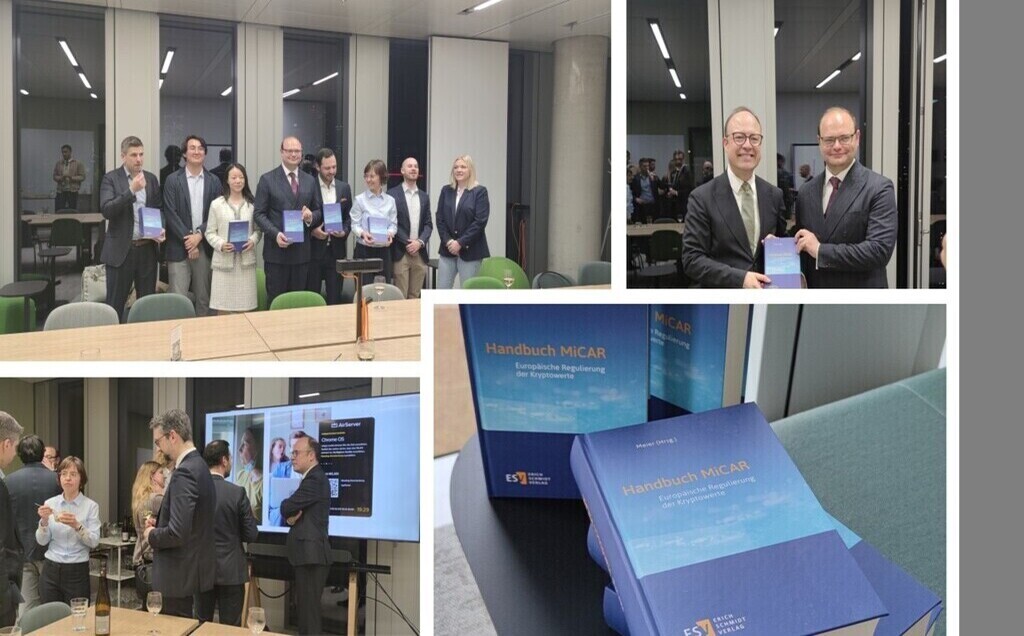So-called Asset-Referenced Tokens (ART) have been strictly regulated under the Markets in Crypto Assets Regulation (MiCAR) since the summer of 2024. According to the MiCAR definition, ARTs are a special form of crypto-assets that attempt to maintain value stability by referencing one or more other assets, without being classified as E-Money Tokens (EMT). According to the new supervisory regime for crypto-assets in the EU, in principle, initially only credit institutions and issuers specifically authorized for the issuance of ARTs are permitted to issue Asset Referenced Tokens and offer them to the public. However, MiCAR allows for an exception to this principle for micro-issuances if the equivalent value of the ART issued by the respective issuer has not exceeded the threshold of EUR 5 million over a period of twelve months. The average outstanding value is to be calculated at the end of each calendar day. If these conditions are met, the issuer of the Asset Referenced Tokens does not require a MiCAR license and does not subsequently have to apply for admission to the competent authority – in Germany, the BaFin. However, this does not eliminate all the other requirements for ART issuers that the MiCAR imposes.
The Obligation to Prepare a Crypto-Assets White Paper Also Applies to ART Issuers under the 5-Million Exception
One of the key obligations of issuers of crypto-assets under MiCAR is the requirement to prepare and publish a crypto-assets white paper. ART issuers, in particular, are required to prepare a crypto-assets white paper for the stablecoins they issue. The MiCAR specifies in great detail the content that must be included in the document. Under the exemption for ART issuances below the 5 million threshold, only the requirement to obtain MiCAR authorization as an issuer of Asset Referenced Tokens or to be a credit institution is waived. However, the text of the regulation explicitly requires the preparation of an ART white paper even in cases where the exemption is applied. The exemptions for issues of other crypto-assets – such as offers to no more than 150 investors per member state or free offers of crypto-assets – are generally not applicable to issues of ART. ART issuers therefore cannot get around the obligation to create a white paper, even if they always remain below the equivalent of EUR 5 million with the ART they issue.
BaFin Does Not Have to Authorize ART White Papers under the 5-Million Exception
MiCAR requires that white papers for ART crypto-assets must be explicitly authorized by the competent authority. This significant difference compared to the white paper to be prepared for other crypto-assets can be explained by the fact that the regulatory requirements for ART issuers are significantly more extensive than those for issuers of other crypto-assets that do not qualify as ART or EMT. However, the requirement to publish a white paper does not apply to issuers operating under the exemption for ART issuances of less than 5 million. This regulation causes problems in that it creates legal uncertainty with regard to the question of exactly how micro-issuers of ART must publish their white paper. This is because the MiCAR regulation on the disclosure requirement on the issuer’s website refers, according to its wording, exclusively to crypto-assets white papers for Asset-Referenced Tokens that have been authorized. The Central Bank of Ireland therefore asked ESMA for clarification on this issue in August 2024. However, ESMA’s response is still pending and is still being reviewed by the EU Commission. However, issuers of ART issues below the equivalent of EUR 5 million will be well advised to also publish the white paper on their own website in any case and to keep it available there from the start of the public offering and only remove it when no third party no longer holds any of the issued ART.
Attorney Dr. Lutz Auffenberg, LL.M. (London)
The lawyer responsible for regulatory questions relating to the authorization as an issuer of asset referenced tokens and for the related exemptions at our law firm is Attorney Lutz Auffenberg, LL.M. (London).
subscribe to Newsletter






